Prokofiev: Symphony No.5 / Strauss, R: Death & Transfiguration (Celibidache)
Introduction
Live performances from Turin in 1969 of Prokofiev`s most popular symphonic work, completed in 1944 and premiered in Moscow at the beginning of 1945, and Richard Strauss`s massive tone poem from 1888/9, based on the `death of an artist`.
The Prokofiev symphony is one of his first large orchestral works that wasn`t based on themes he had written for other pieces, and had become a major project for him as he (and several other important Soviet musicians as part of the Composers Union) was based in Ivanovo during the later war years.
Strauss wrote his work when he was only 25, and used a `subject` which was generally picked up on by older artists who were closer to death themselves. Another unusual concept was to have a poem written (by his friend Alexander Ritter) which was based on the music after its completion, rather than the other way around.
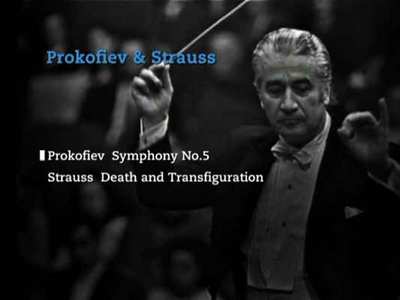
Video
Quite a clean transfer for a B&W italian TV recording, although there are plenty of issues of lighting glare on the cameras and some pretty dodgy TV direction.
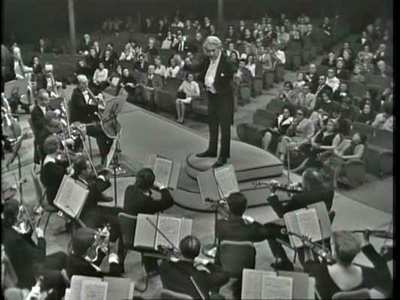
Audio
The digitally remastered 2-track mono is passable, but is never going be able to convey the full dynamic range of the works on offer here (and so much of the ferocity in the Prokofiev is lost on the listener).
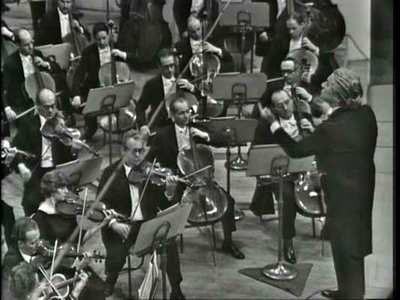
Features
None on the disk, but we have a fairly decent introducion to the music from Misha Donat within the booklet that comes with the DVD.
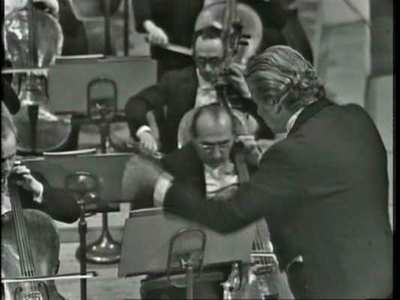
Conclusion
I think it`s great that we have the opportunity to see old TV recordings on DVD, and there are plenty out there which need to be transferred, however it`s a shame that Celibidache`s legacy in the medium is generally a bit hit-and-miss, and no more so than on this disk.
The major issue we have in these releases is the consistency of the orchestral quality. Quite often, they seem completely uninvolved in the performances and at worst are a liability (notably the opening of the Prokofiev 2nd movement, and more disastrously, at the fugato section in the Finale (c.40 mins) when the lower strings have a collective `senior moment` and Celibidache has to sing/grunt* loudly to remind them where they should be and how it should go.
*Delete as applicable
The most successful part of the Prokofiev is the slow movement, which is qctually quite a blessing seeing as it`s the emotional heart of the work, and everyone appears to get more involved. The only thing that spoils things is the final chord which sounds messy due to the incredibly quiet dynamic.
The Strauss, on the other hand, is far more satisfactory. Celibidache seems less the lumbering and awkward conductor he often appears (mirrored beating should be banned!) and whips the orchestra up into the necessary frenzy and passionate free-for-all that this work demands, and apart from a few squeaks and slightly out of tune woodwind in the very quiet passages this is, overall, a highly successful and committed performance.
So, another curiosity really, and again, perhaps one for die-hard Celibidache fans only as each of the works on the disc may be found on various other formats in far more satisfying performances in all respects.
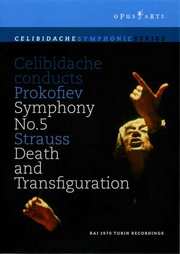
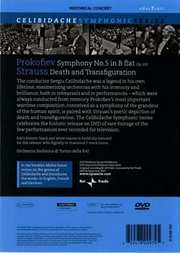




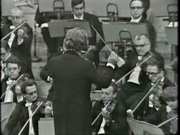
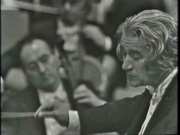
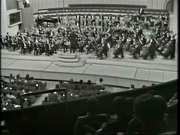
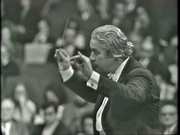
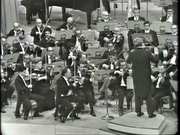






























Your Opinions and Comments
Be the first to post a comment!